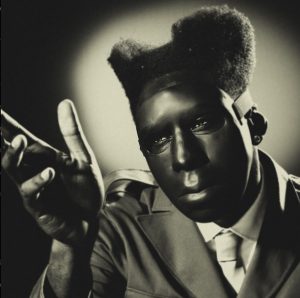The Myanmar Genocide: What you need to know
November 29, 2018
When one references genocide or ethnic cleansing, they may think back to the Holocaust or Rwanda: horrific and inhumane tragedies of the distant past. In 2018, a majority of people believe it’s something that no longer happens, and with all the resources and military strength in the world today one would think any sort of genocide would be shut down immediately. Unfortunately, this is not the case; At the moment, countless of innocent Rohingya Muslims are being senselessly murdered and forced out of their homeland of Myanmar.
The Rohingya are a Muslim ethnic-minority group who have lived in Myanmar for centuries. They mostly reside in a Western Coastal state called Rakhine, where they make up about one-third of the population. However, despite their deep roots within the country the government of Myanmar refuses to recognize the Rohingya as citizens. They are even excluded from a national ethnicity list which includes over 135 nationalities.
The government claims that the Rohingya actually are from Bangladesh and that originally most of them were sent to Myanmar as laborers when the British had control of India. Yet, Bangladesh also denies their citizenship and the rest of the South-Asian countries are just as unwelcoming.
In Myanmar, the group has suffered inhumane atrocities on top of the extreme discrimination. A recent UN investigation uncovered that Myanmar’s military has been raiding Rohingya villages, inflicting extreme violence upon the innocent people. They rape women, kill children and once they seem to have wrapped up the destruction, set fire to the village. Despite the accusations of genocide, the Myanmar government heavily denies these claims. They refuse to acknowledge any sort of violence is occurring in an attempt to cover up their involvement. Unfortunately for them, there is undeniable evidence of their wrongdoings.
In a message regarding the Myanmar military, Marzuki Darusman, the chair of the UN fact-finding mission stated, “during their operations the Tatmadaw (Myanmar Military) has systematically targeted civilians, including women and children, committed sexual violence, voiced and promoted exclusionary and discriminatory rhetoric against minorities, and established a climate of impunity for its soldiers.”
He also goes on to explain, “I have never been confronted by crimes as horrendous and on such a scale as these… top generals should be investigated and prosecuted for genocide.”
In addition to the brutality the Rohingya face, their living conditions within Myanmar are dreadful: most live in impoverished camps, yet many are displaced and have no real place to call home.
The sheer scale of ethnic cleansing occurring in the area is what is most concerning. So far, more than 720,000 Rohingya have fled into Bangladesh since the violence started and they hope to never have to return. When refugees were interviewed at a Bengali camp, they expressed the harsh reality they face. 60-year-old Rohingya refugee Rahima Khatun told CNN, “I would rather eat poison or jump from the boat and die rather than go back.”
Another refugee by the name of Dil Muhammad also stated that “we were tortured, female members in our family were raped, and children were burnt alive.”
As the world is seemingly turning their shoulder on the Rohingya, we urge anyone reading to at the very least spread this news. These people have faced unprecedented oppression throughout their entire lives and there is no apparent end in sight. If we as a people allow this to continue without interference, it goes to show that there is much-needed work to be done regarding equality and racism. Without any help, ethnic cleansing in Myanmar will continue and those responsible won’t be held accountable. For more information, please check out: http://mm.one.un.org/
SOURCES:
https://www.cnn.com/2017/09/05/asia/rohingya-myanmar-explainer/index.html
https://www.cnn.com/2018/11/15/asia/rohingya-repatriation-myanmar-intl/index.html
https://www.cnn.com/2018/08/27/asia/un-myanmar-genocide-investigation-intl/index.html






